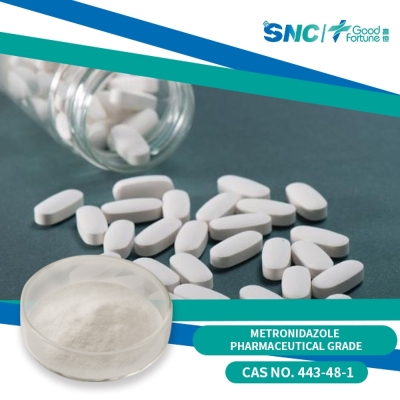-
Categories
-
Pharmaceutical Intermediates
-
Active Pharmaceutical Ingredients
-
Food Additives
- Industrial Coatings
- Agrochemicals
- Dyes and Pigments
- Surfactant
- Flavors and Fragrances
- Chemical Reagents
- Catalyst and Auxiliary
- Natural Products
- Inorganic Chemistry
-
Organic Chemistry
-
Biochemical Engineering
- Analytical Chemistry
-
Cosmetic Ingredient
- Water Treatment Chemical
-
Pharmaceutical Intermediates
Promotion
ECHEMI Mall
Wholesale
Weekly Price
Exhibition
News
-
Trade Service
Streptomycin sulfate is an antibiotic that is widely used in the treatment of a variety of bacterial infections.
It is produced through a fermentation process using the bacterium Streptomyces griseus.
The compound is then purified and processed to yield streptomycin sulfate, which is the active ingredient in many pharmaceutical products.
The production of streptomycin sulfate involves several steps, including the cultivation of the bacteria, the extraction of the antibiotic, and the purification and processing of the compound.
The first step in the production of streptomycin sulfate is the cultivation of the bacteria.
This is typically done in a laboratory using a nutrient medium that is suitable for promoting the growth of the bacteria.
The bacteria are then allowed to grow and reproduce, producing the streptomycin sulfate as a byproduct.
Once the bacteria have been grown and the streptomycin sulfate has been extracted, the compound is typically purified using a variety of techniques.
This may involve the use of chromatography, filtration, or other methods to remove impurities and isolate the pure streptomycin sulfate.
The purified compound is then processed to create the final product, which is used in pharmaceuticals and other applications.
One of the key advantages of streptomycin sulfate is its broad spectrum of activity against a variety of bacterial infections.
This makes it an important tool in the treatment of conditions such as pneumonia, tuberculosis, and strep throat.
The compound is also used in veterinary medicine to treat a range of animal diseases.
In addition to its use in medicine, streptomycin sulfate is also used in a variety of other applications in the chemical industry.
It is used as a catalyst in the production of polyester fibers, for example, and as a corrosion inhibitor in industrial processes.
The compound is also used in the production of a range of other chemicals and products.
Despite its many benefits, streptomycin sulfate also has some potential drawbacks.
One of the main concerns with the use of the compound is its potential for resistance to develop in bacterial populations.
This can make the antibiotic less effective over time, which can be a problem in the treatment of bacterial infections.
In addition, streptomycin sulfate can have negative effects on the environment, particularly in aquatic ecosystems.
It is important to take these factors into consideration when using the compound and to follow proper safety protocols to minimize its impact on the environment.
Overall, streptomycin sulfate is an important compound in the chemical industry and has a range of applications in medicine.
Its broad spectrum of activity and versatility make it a valuable tool in the treatment of bacterial infections and in a variety of other applications.
However, it is important to use the compound responsibly and to consider its potential impact on the environment.
With proper use and management, streptomycin sulfate can be a valuable resource for many different industries.







